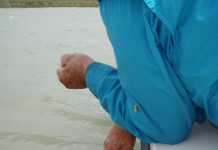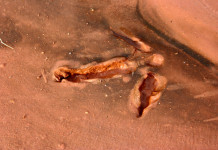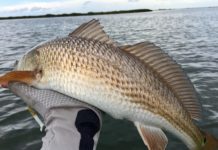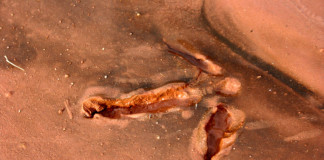The latest tests and monitoring looking for zebra mussels in North Texas lakes yielded mixed results, Texas Parks and Wildlife Department officials said.
While zebra mussel DNA was detected in Lakes Texoma, Ray Roberts, Lewisville, Bridgeport and Bob Sandlin, no zebra mussel populations could be confirmed by physical inspection in Lewisville, Bridgeport and Bob Sandlin.
“We know a zebra mussel population exists in Lakes Texoma and Ray Roberts,” said Brian Van Zee, TPWD’s regional director of inland fisheries, according to a news release. “Our district biologists have looked for evidence of zebra mussel populations in Lakes Lewisville, Bridgeport and Bob Sandlin since receiving the DNA test results, but none were found. This is not uncommon, as the test is very sensitive and has been known to show positive results in several lakes where zebra mussels have never been documented. It’s possible that the results are showing us that boat owners may be moving contaminated boats to these lakes, but that viable populations haven’t developed.”
Dr. Robert McMahon, Professor Emeritus of Biology at the University of Texas at Arlington, has monitored 14 North Texas reservoirs for the presence of zebra mussels using three techniques, according to the release. One technique looks for zebra mussel DNA in the water, another uses a microscope to look for zebra mussel larvae (veligers) in the water, and the third uses a submerged monitor to look for newly settled juvenile mussels.
“The DNA test results for Lakes Bridgeport and Bob Sandlin were very weak positives,” McMahon said. “The results for Bob Sandlin were so weak as to almost be below the limit of detection.”
“TPWD will continue monitoring these lakes for the presence of zebra mussels and doing everything it can to encourage boaters and anglers to clean, drain and dry their boats before moving them to another lake,” Van Zee said in the release.
TPWD is asking anyone transporting a vessel that has been used on Texoma, Ray Roberts, Lavon or Lewisville to another water body to take the following precautions: (1) clean vegetation, mud, algae and other debris from the boat and trailer; (2) drain water from the motor as well as the live-well, bilge, bait buckets and any other compartments or systems that hold water; and (3) dry the vessel and associated equipment for a week to 10 days from May through October or for 15 to 20 days from November through April. These drying times are approximations, and conditions such as cooler air temperatures, higher humidity and whether or not the vessel is kept in dry storage should be considered, according to the release.
However, boats and other vessels that have been kept on a lake known to be infested with zebra mussels for an extended period of time may require additional cleaning procedures. Power-washing with water of at least 140 degrees Fahrenheit and flushing the motor, bilges, live-wells and other raw water intake systems with 140-degree water will kill zebra mussels. To be effective the water coming out of the flushed systems needs to reach 140 degrees to ensure the system was exposed to water hot enough to kill the mussels, according to the release.
If it is not possible to clean the internal systems or compartments using 140-degree water, the use of either straight vinegar or a chlorine bleach and water solution (one-half ounce bleach to one gallon water) can be effective at killing zebra mussels as long as the mixture is kept in contact with the mussels for a sufficient amount of time (20 to 30 minutes), according to the release. Clean water should be used to flush the chemicals and dead mussels from the boat following treatment. Boat owners should check with their manufacturer to be sure using these chemicals will not void their warranty.
Large vessels with complex water intake systems such as those used for cooling the engine, air conditioning or personal sanitation may require decontamination by a boat mechanic or marina, according to the release.
More information and a video showing how to decontaminate a boat can be viewed on the 100th Meridian Initiative website.
Possession or transporting of zebra mussels in Texas is a Class C misdemeanor punishable by a fine of not less than $25 and not more than $500 for the first offense, according to the release. Repeat offenses can be elevated to a Class B misdemeanor, which is punishable by a fine of as much as $2,000, jail time of as much as 180 days, or both. If an individual is convicted a third time for this same offense it becomes a Class A misdemeanor which is a fine of as much as $4,000, jail time not to exceed a year, or both.






















